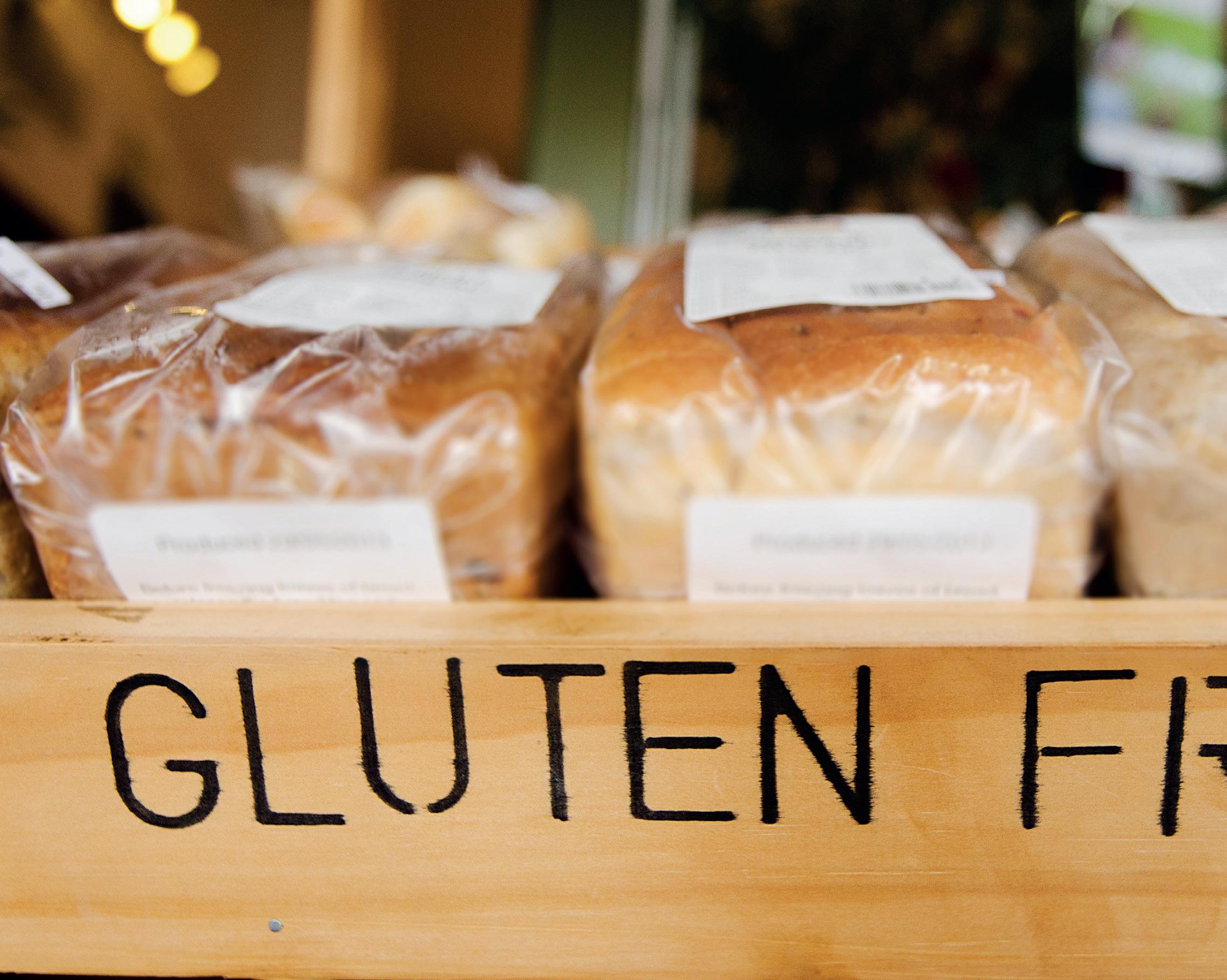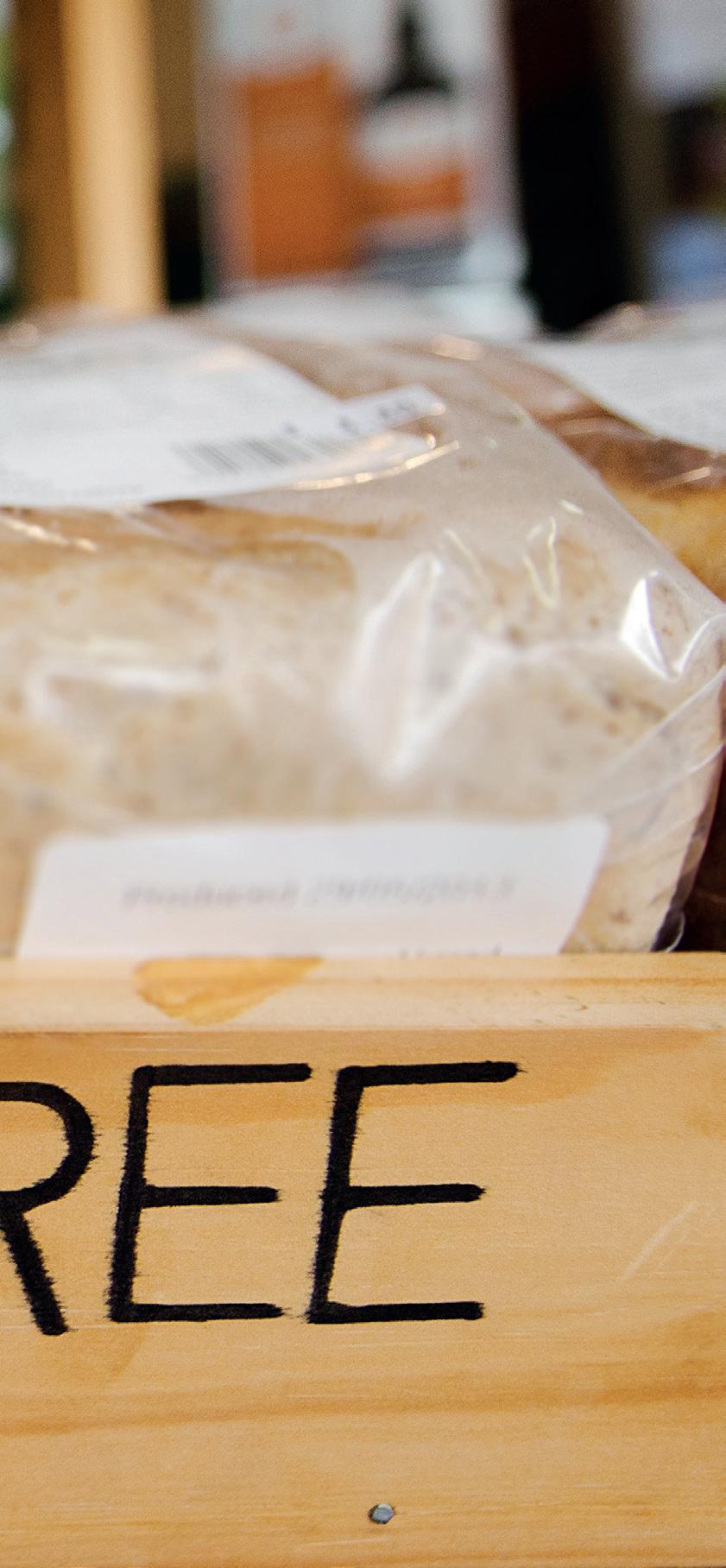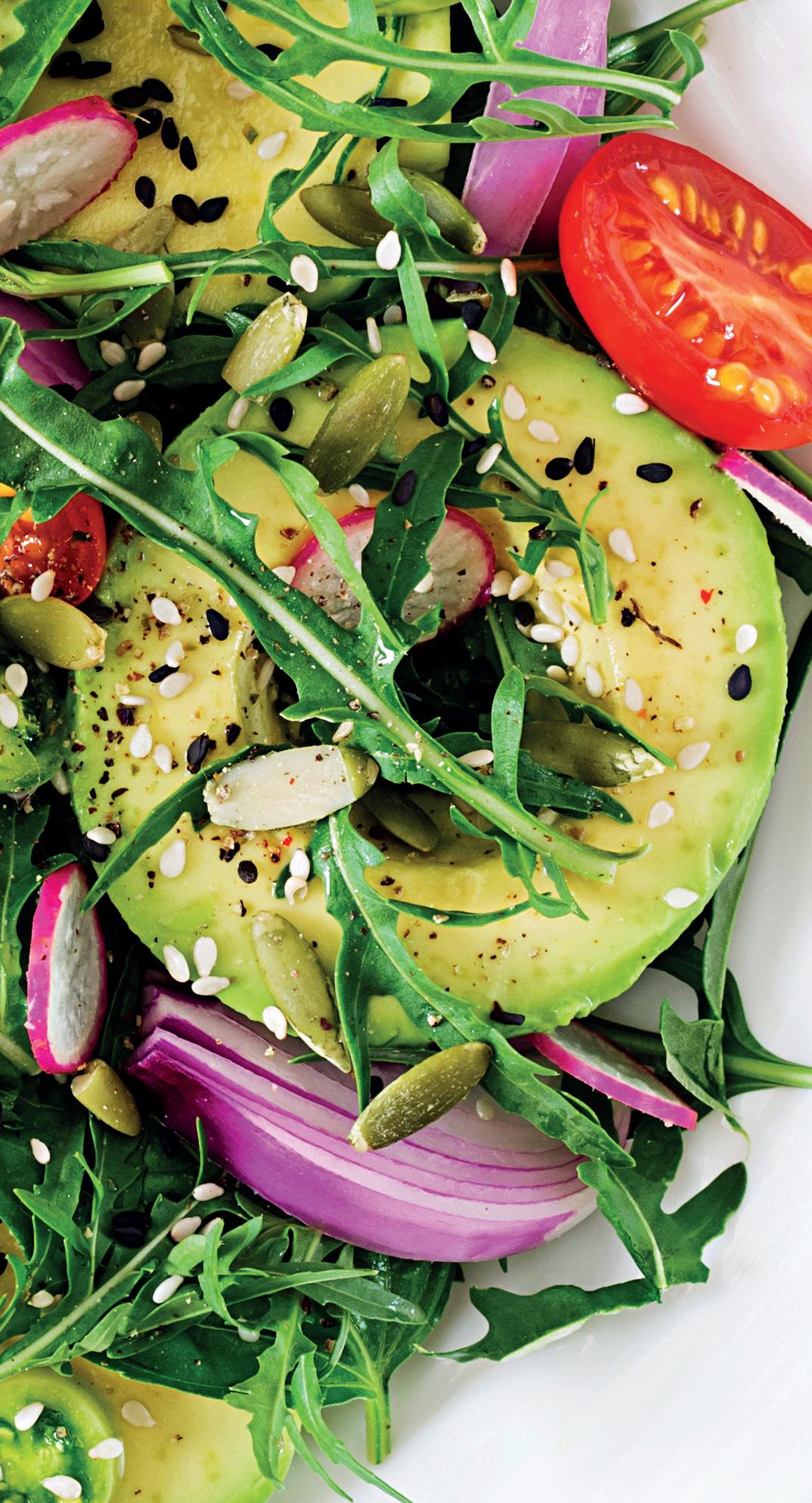
5 minute read
Food is medicine
We grab fast food for lunch, enjoy takeouts for dinner, celebrate with our favourite indulgences and console ourselves with sugary treats.
Unhealthy food plays such an intrinsic role in our everyday lives it’s tempting to think we’ve all forgotten the wise old message from Hippocrates: “Let food be thy medicine.”
Yet Dr Sabrina Famous is optimistic that deep down most of us know a good diet can help keep our bodies and minds in shape.
It’s just that – partly because of the stresses and strains of life – we don’t always act like it.
Famous is a physician at Ocean Rock
Wellness in Point Finger Road, Paget, which takes a root-cause approach to health and encourages clients to adopt better life habits.
“When people come to us, they’ve already been to the specialist or the clinic,” Famous says.
“Something inside them intuitively is telling them there is another way, a much simpler way. They say they want to do something different this time.
“I think deep down we all know. Intuitively, when we are sick or unwell, we automatically stop eating – sometimes it’s just excess food that makes us unwell.
“But as a society we’re not eating wholesome, clean diets, simple foods.”
Today’s wisdom, of course, falls mainly in line with Hippocrates, the Greek philosopher and “Father of Medicine” who was born in 460 BC.
“The concept is the same as thousands of years ago,” Famous says.
“Good food – fruits and vegetables with all their nutrients and plant chemicals – can help us to prevent disease by shutting off genetic components or turn on genetic components that help us to detox better.
“With every single bite of food, you are sending a directive. It can come with messages of inflammation, or it can come with messages of protection, or DNA repair, or it can turn on or shut off your genes.
“Don’t we feel better when we have salads or roasted cauliflower?”
Not all Bermudians eat the right meals every day, but most are aware that going to their local farmer is better than the grocery store, and that growing their own tomatoes and bananas is a good thing.
“A mixture of our modern way of living – the busy-ness and the cost – those strains on us make sometimes choose differently,” Famous says.
Many people are trying to do better by adopting gluten-free or vegan diets, but Famous cautions it’s not as simple as that.
“In general, there are benefits,” she says.
“The science supports that removing gluten from the diet can really reduce things like inflammatory issues in the gut and therefore some of the more secondary related diseases like arthritis and brain inflammations.
“But some people think removing gluten from the diet means they are just going to swap all their regular food for the gluten-free equivalent.
“I wouldn’t want you to go through your cupboard and say I’m going to swap my Raisin Bran for Chex Rice because an ideal breakfast would probably be fresh fruits and vegetables.
“It’s the same with vegan. You can do good vegan, or you can do vegan where you’re eating French fries and veggie burgers all day.
“If you do vegan poorly – if you’re using a lot of fake meats – no matter how good they say they are, a fake meat is not going to be better for you than some whole fruits and vegetables.”
Famous advises sticking to foods that look like they’ve been minimally processed.
“When things are overly processed, we move into this realm of diet where it doesn’t matter if it’s gluten free or vegan or not – it’s not great for you.
“Yes, you might avoid the inflammation that gluten can create but you’re not in a more nutrient-dense diet.”
Going gluten-free also means you’re removing the herbicide glyphosate from your diet.
“Wheat is one of the most heavily sprayed foods,” Famous says. “It can cause similar damage to the gut lining and create a lot of inflammation.”
Following a gluten-free or vegan diet is as easy as going to the farmer’s market.

“The more fruits and vegetables you have in your diet, the better it’s going to be,” Famous says.
“We have access to those things, whether it’s frozen or fresh.
“I know that cost becomes an issue, but you can lower the cost by buying whole foods rather than the gluten-free version of your favourite thing.
“Frozen vegetables can be a powerhouse of being able to include a little bit more than budgets allow, but it’s important to remember the many benefits of fresh foods.”

And remember you don’t have to be perfect.
“You can have a steak if you wish. It’s always about making sure you do more of what’s good for you than what’s not. Not everyone’s going to go all the way left-field and do what’s right every time.”
So that’s good news for steak fans. But what about other Bermudian dishes that we’re frequently told to avoid, like macaroni and cheese, fried fish, and fried chicken?
Dr Annabel Fountain, the medical director at Fountain Health, says: “I don’t think it’s necessarily a good thing to demonise any food.
“Rather than saying we should avoid something, we should make sure we eat in moderation.
“The cassava pie your mom and grandmother make at Christmas and Easter is completely different to buying it from a buffet every day.
“If it’s your family recipe, and you know exactly what’s gone into it, and you’re only eating a little bit of it – that’s absolutely fine.
“When you’re at a buffet and you load your plate with things that look good or smell good without looking at the ingredients and making sure they’re balanced and nutritional –that’s a real problem. People are getting takeouts and fast food all the time and that’s a problem.”
We generally don’t pay enough attention to what we eat, and Fountain doesn’t believe that’s entirely our fault.
“If I’m shopping and I’m buying anything with a label, I’m reading the nutrition and ingredients. It takes forever to find a mayonnaise that doesn’t have seed oils or sugar,” she says.
She advises buying products from Europe, where restrictions on toxins are stricter than North America.
You should also go for free range eggs and chicken, or grass-fed beef or lamb. Fountain also warns against blindly buying from farmers markets.
“They’re often going to be better but not everything is local at these markets and Bermuda’s laws on pesticides aren’t necessarily any better than the US,” she says.

“I do know that our farmers are conscious of what they’re putting in and on our soils.”
Ask your farmer where the food came from and whether pesticides or herbicides were used.
“Eating fresh vegetables is probably still good for you. Just wash them very well when you get home,” Fountain adds.
A vegetable stir fry can be healthy if you use avocado or coconut oil; healthy fats can be found in most nuts, olive oil and oily fish; and high-quality protein can fill you up and provide amino acids, vitamins, and minerals.

And if you’re wondering what to drink with that occasional piece of steak?
“A glass of red wine has potential health benefits from resveratrol and is certainly better than a soda,” Fountain says.
Moderation, of course, being the key.










